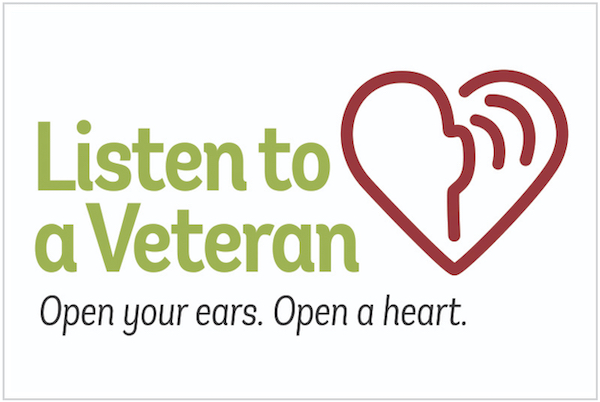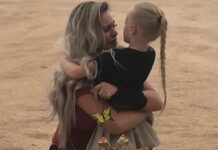This week on MIA Radio, we chat with Paula J. Caplan. Paula is a clinical and research psychologist, author of books and plays, playwright, actor, director, and activist. She was born and raised in Springfield, Missouri, attended Greenwood Laboratory School, received her A.B. with honors from Radcliffe College of Harvard University, and received her M.A. and Ph.D. in psychology from Duke University.
Currently, she is an Associate at the Du Bois Institute, Hutchins Center for African and African American Research, Harvard University. She has been a Fellow at the Women and Public Policy Program of the Kennedy School of Government at Harvard; a Lecturer in Harvard’s Program on Women, Gender, and Sexuality in the Psychology Department. She is former Full Professor of Applied Psychology and Head of the Centre for Women’s Studies in Education at the Ontario Institute for Studies in Education, and former Lecturer in Women’s Studies and Assistant Professor of Psychiatry at the University of Toronto.
Paula is also a passionate and steadfast advocate for service members, veterans and their families. She has written: When Johnny and Jane Come Marching Home: How All of Us Can Help Veterans and has founded the Listen to a Veteran! Project.
In this interview, we discuss Paula’s work to support service members, veterans and their families, and the role psychiatric drugs have played in harming these communities.
We discuss:
- Paula’s experiences that drove her towards working in mental health and advocating for veterans, which came from her father’s service in World War II. This included combat in the Battle of the Bulge.
- After hearing her father’s story that had been recorded as part of a history project, she learned her father had been a forward observer, and as result learned he had been on the front lines of the war. This led to her realizing that most American’s don’t understand military service and the only way of doing this, is through hearing veterans’ stories.
- Prior to the invasion of Iraq, she became concerned about the care of service members of veterans and veterans upon their return from war, and more concerned of the “psychiatrization”, diagnosing and prescribing psychiatric drugs to veterans.
- To get started in her efforts, she began by listening to a veteran share his experiences with her. The veteran talked for three hours, and Paula just listened. The next day, he called her and thanked her for listening, as he got a good night sleep for the first time in years.
- This led to her starting Listen to a Veteran, which was originally called “When Johnny and Jane Come Marching Home”. As part of this initiative, a veteran of any era can meet with another person who has volunteered to listen to the veteran share any stories or experiences they’re interested in sharing.
- Paula has faced barriers in getting this program expanded to the VA or throughout the “mainstream” mental health community because the system has been created to function based upon current “evidenced-based” best practices.
- How Paula is positive that we are currently causing harm to veterans and that alternative approaches need to immediately be implemented throughout the Department of Defense and Department of Veterans Affairs.
- How “therapy” needs to be dropped from the terms “art therapy”, “music therapy” and the like, so we can stop pathologizing individual experiences, and instead support people in doing things that improve their overall well-being.
- Any veterans who want to be a listener as part of Paula’s Listen to a Veteran initiative, or would like to have someone listen to them, they can go to listentoaveteran.org.
















The link to Paula’s organization doesn’t work. Great interview though, Paula is a psychologist who speaks the truth and uses common sense. I’m so glad she’s listening to veterans. It’s insane to believe that distress caused by war is a “mental illness.” We’re living in a crazy world.
Report comment
Hello, Someone Else,
Thank you for the kind words. The link should be listentoaveteran.org I will ask that it be corrected in the above. Thank you for catching that.
Report comment
Paula, the link now works. Are you by any chance interested in involving non-mentally health trained, but very well researched in independent psychopharmacology, non-stigmatizing believing artists, with experience and great results in helping underprivileged, often abused, children in your program?
I’ve noticed you’re currently only requesting “Any veterans who want to be a listener” to assist. But art is great therapy, especially art that doesn’t involve stigmatization/defamation of the person, which art never should. But all the so called “art therapy” today does involve such DSM stigmatization.
Jim Gottstein has told me personally that you and I see quite eye to eye. I agree, we need to fund “therapy” that actually helps people, rather than “therapy” which merely stigmatizes people with the “invalid” DSM disorders. If you’d like to connect and talk, please let me know.
The results of teaching children to utilize the creative side of their brains, which our current school systems are not doing, are actually quite amazing.
And I believe that wonderful results could also be found with other trauma survivors. I know painting my frustrations were what allowed me to survive the systemic, multiple attacks by child abuse covering “mental health” workers.
And that comes from a mother of a child abuse survivor, whose child did heal and graduate Phi Beta Kappa, not a person who had personally experienced child abuse.
Unfortunately, my childhood religion has become, because it has filled itself with, a bunch of systemic child abuse covering up, DSM “bible” believing “mental health” workers, an unrepentant religion.
https://books.google.com/books?id=xI01AlxH1uAC&printsec=frontcover&source=gbs_ge_summary_r&cad=0#v=onepage&q&f=false
Report comment
Hello, Someone Else,
If you will listen to the podcast again and look at the website at listentoaveteran.org you will see that we do NOT have veterans as listeners. Please note that the project is called Listen to a Veteran! We have nonveterans who are not therapists listen to veterans.
As for having listeners for people who were abused as children or adults, I hope you will set up listening sessions for them. My approach as described on the above website is easily used for listening to anyone who is suffering. I don’t arrange for listening sessions for anyone other than veterans or servicemembers or their loved ones, because I have no staff, no assistance of any kind, and no funding. But I encourage you to do as you suggest.
And yes, I certainly agree that all sorts of nonpathologizing approaches are the right things to use for people who are suffering in any way. The more than two dozen examples of such approaches can be seen at http://www.youtube.com/playlist?list=PL51E99E866B9D735E from a conference I organized that is for veterans, but the approaches are useful for everyone. And I beg people, as noted in the podcast, to stop using terms like “art THERAPY” and “music THERAPY” and just call them art and music, etc.
Thank you for your comment.
Report comment
I know, right? Instead of taking a walk, I’m engaging in “ambulatory therapy?” Surprised they haven’t tried to patent it and forbid us to take a walk without paying our therapist for it!
Report comment
Thank you, Paula, for the work you do. Pathologizing pain and distress leads to a lot more pain and distress, it seems. Isn’t it amazing that simply listening, on equal footing with another human being, is often all a person needs.
Report comment
1Wayfarer, you are so right!
Report comment